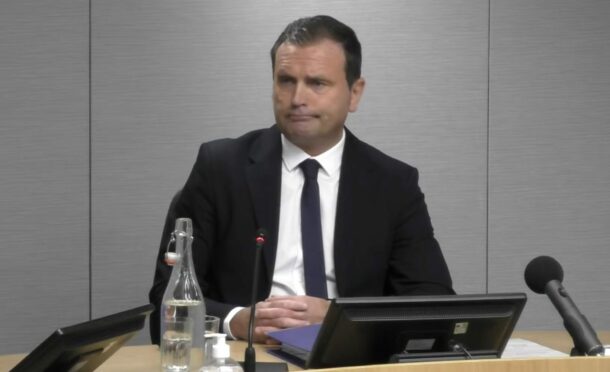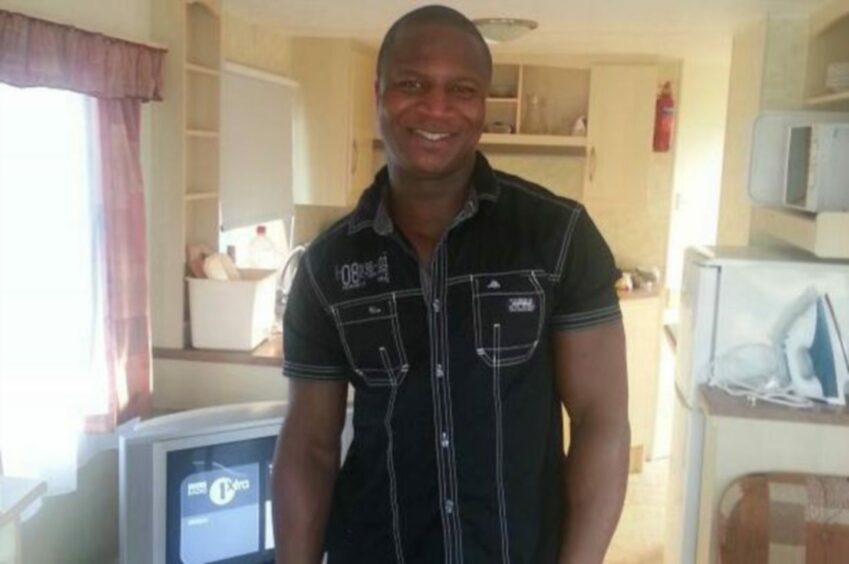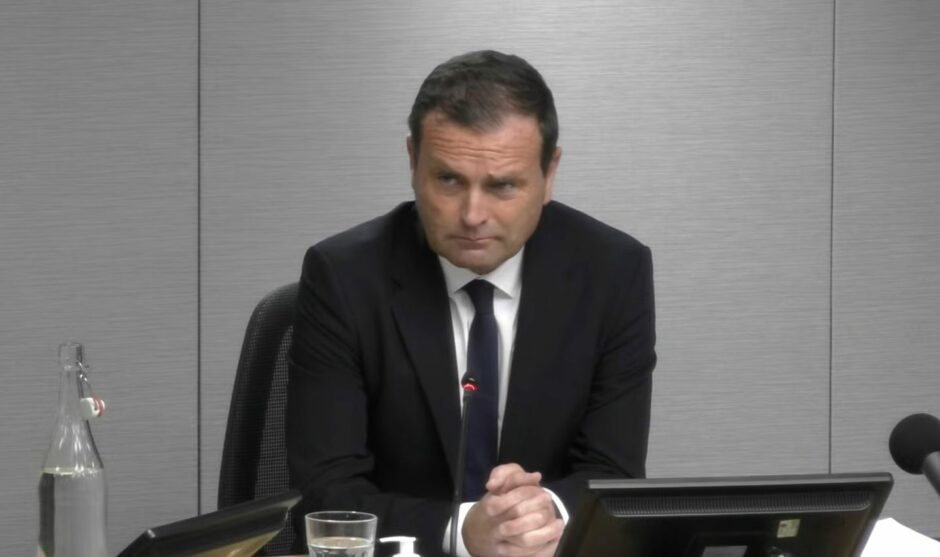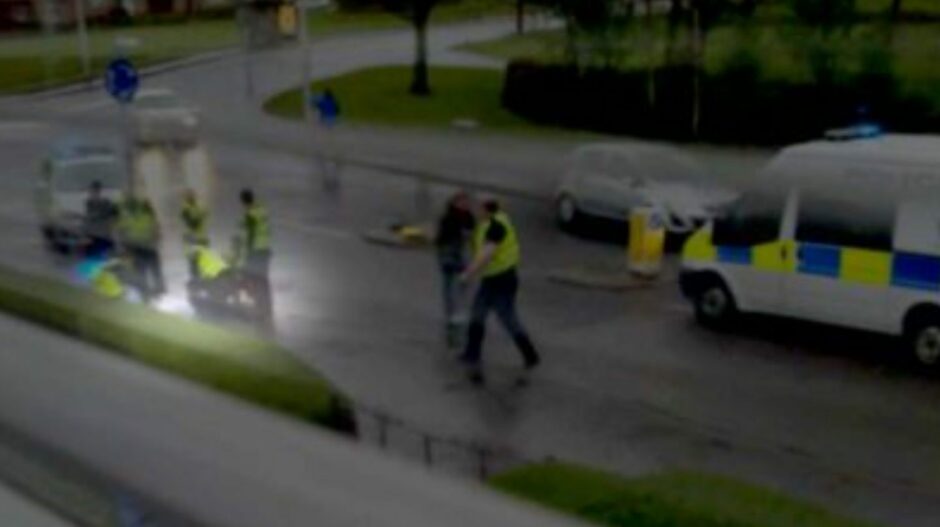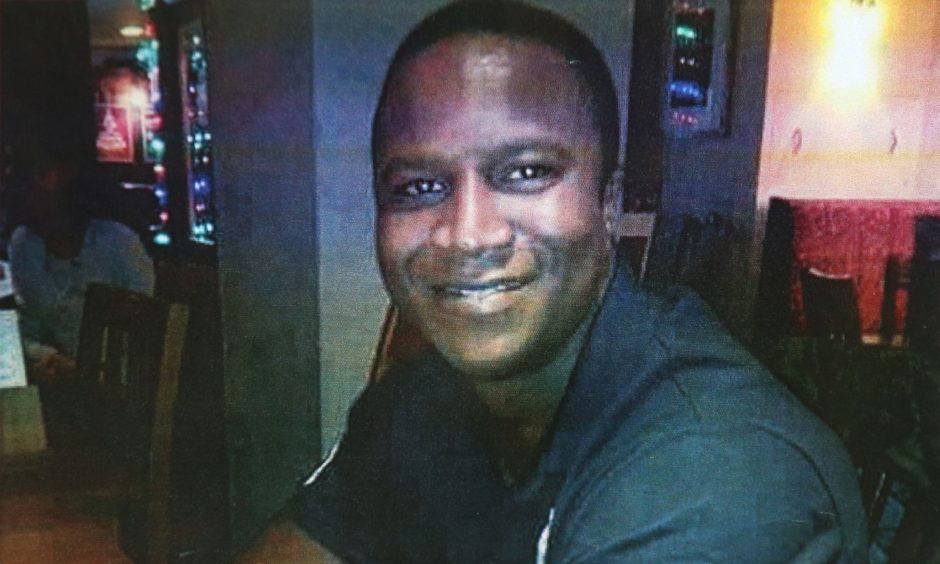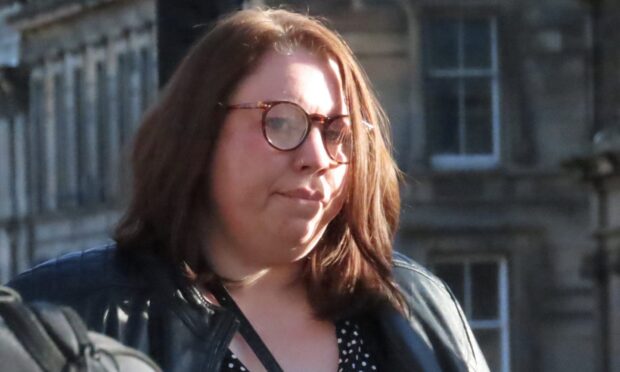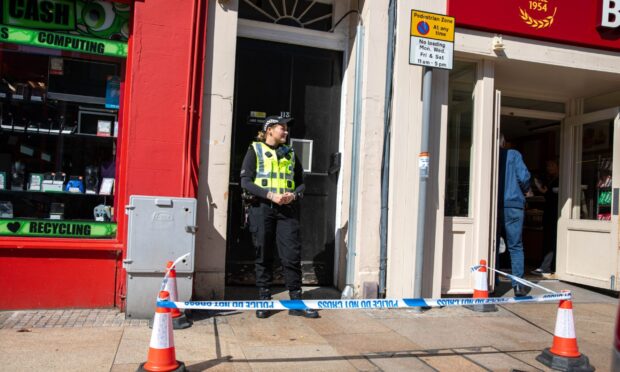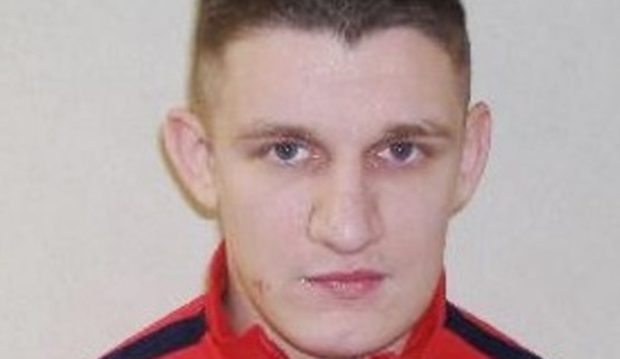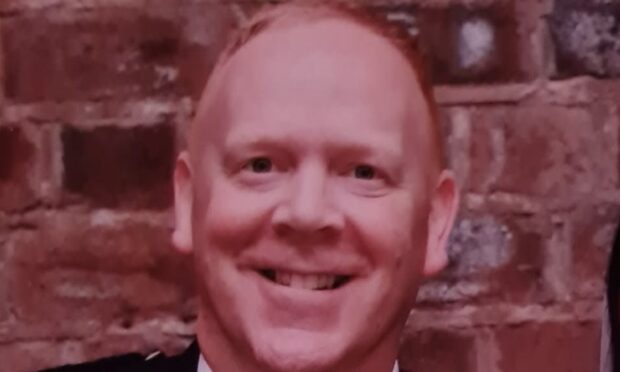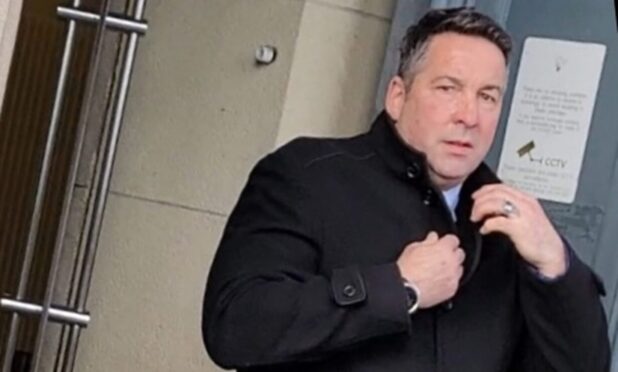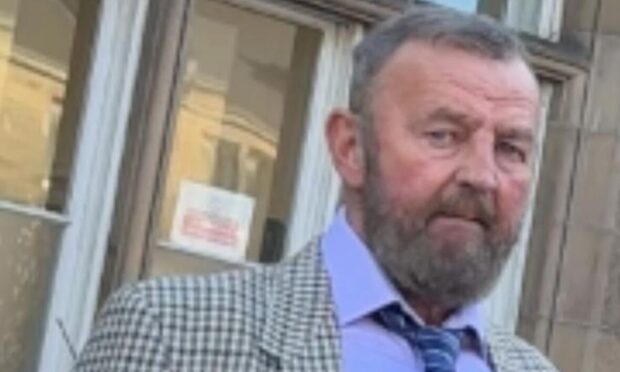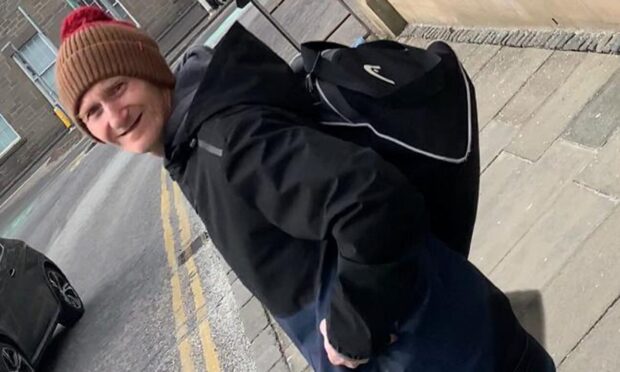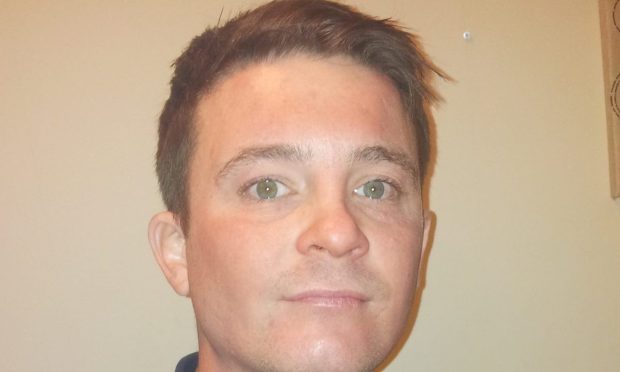The senior officer investigating Sheku Bayoh’s death considered whether the case could be linked to terrorism.
Detective Chief Superintendent Pat Campbell said it was one hypothesis he initially considered as he drove to the scene from Edinburgh to take charge.
He told the inquiry into the Mr Bayoh’s death it was “quickly eliminated” after background checks but such considerations were rightly part of keeping an open mind during the investigation.
Mr Bayoh, 31, a father-of-two, died after he was restrained on the ground by police officers in Kirkcaldy, on May 3 2015.
The inquiry is investigating the circumstances of his death and whether race was a factor.
Terrorism considered and dismissed
Mr Campbell, who was a detective superintendent at the time, said he came up with a number of theories as he drove to Kirkcaldy on May 3 after being appointed senior investigating officer (SIO).
Angela Grahame KC, lead counsel to the inquiry, asked why he considered the terrorism-related idea as a hypothesis in the first place.
Mr Campbell said: “It was really the circumstances of the incident.
“What we had was a male with a knife at six o’clock in the morning in a relatively quiet town – Kirkcaldy – acting erratically.
“That was not the initial focus, just one of the hypotheses.
“We were looking at absolutely everything that we could consider to ensure that there was rationale and accountability around my decision-making.
“But with the necessary checks that we carried out through our intelligence side we could quite clearly identify that there was no aspect of terror-related motivation around this.”
He said the climate was also different in 2015, when the threat level was classed as “severe” and the risk of an attack on officers was thought to be highly likely.
Mr Campbell said the consideration of terrorism was “absolutely not” linked to the colour of Mr Bayoh’s skin.
“If it was a white male with a knife restrained by police officers, I would still have had the same hypotheses around ‘let’s get the checks done, is he linked to any particular aspect of the terror network?’
“So Mr Bayoh being black had no relevance at all to it.”
Pirc misgivings
Officers had been sent to the scene after reports to 999 call-handlers a man had been carrying a knife and attacking vehicles.
Mr Campbell said the other hypotheses he considered were whether Mr Bayoh’s death could be linked to drugs or drink, or an earlier assault which may have led him to Hayfield Road.
He said during the time he was SIO, he could not eliminate the hypothesis that restraint could have been a factor in Mr Bayoh’s death.
Mr Campbell also told the inquiry he felt some trepidation about handing the incident over to the Police Investigations and Review Commissioner (Pirc) team – which arrived in Kirkcaldy at about 1.25pm on May 3 and took over as lead investigator – having been managing it remotely since around 9.30am that day.
He said police had around 22 detectives involved, while Pirc arrived with a team of four or five and he had concerns about their capabilities with those resources.
Officers would have been ‘called out’
Earlier this week, a senior officer told the inquiry officers involved in the incident would have been “called out” if they were responsible for any criminal acts.
Chief Inspector Conrad Trickett was appointed as the post-incident manager.
He told the inquiry the officers he had been involved with would have been “dealt with” through a criminal justice process had they been found to have committed a crime.
He said post-incident management is brought in to ensure officers are treated as witnesses.
“This is a process that should be followed in order to secure the evidence that is required for the investigation.
“That doesn’t mean they are suspects in a criminal inquiry.
“Police officers do the job we trained them to do and that might include lethal force but that is still the job we have trained them to do.
“They are not suspects in anything. They are police witnesses.”
‘Unconscious bias’
The inquiry is also examining whether race played any part in the manner in which the death came about, or its aftermath.
Mr Trickett, 51, told the inquiry, at the time, police officers would have been aware of the Equality Act, which came into force five years previously and put legal duties on those with protected characteristics like race and gender.
Mr Trickett said part of police training now includes looking at unconscious bias.
He said everyone has unconscious bias and people need to recognise it exists and how it impacts on them and their opinions.
Mr Trickett, who has 24 years’ police service, said: “The way to overcome unconscious bias is to listen to other opinions.
He told the inquiry every person has a different unconscious bias and by putting the problem into a group and listening to the different perspectives you will “overcome unconscious bias through that engagement and diverse thinking”.
The inquiry, before Lord Bracadale, continues.
